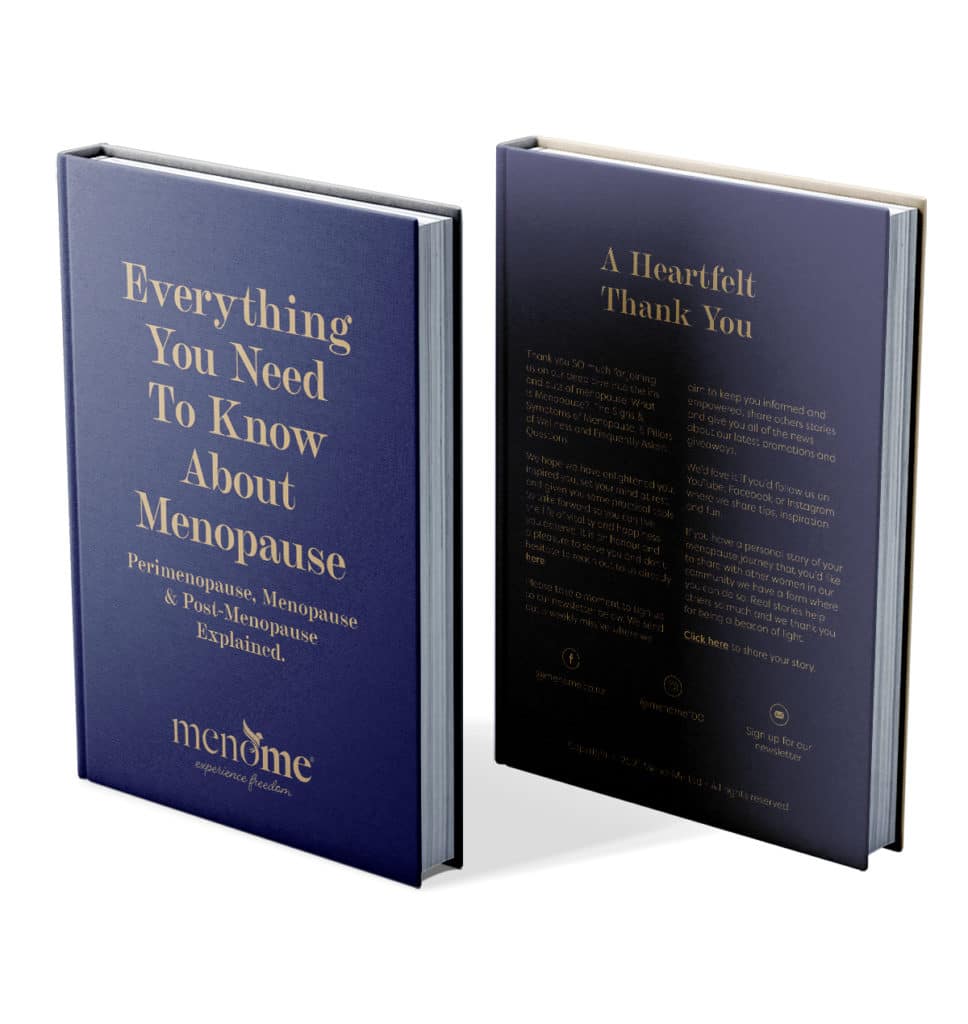What To Look Forward To When Menopause Ends – 5 Great Things

Let’s take a look at five things to look forward to in menopause. Or, rather post-menopause.
Although it’s changing (finally), society kept us in the dark for decades. In fact, menopause awareness was banished to the corner of taboo-land for years.
Stumbling into perimenopause
As a result, many females found perimenopause crept up unannounced.
What’s more, it used to come without a manual!
Furthermore, most women didn’t realise they could be in for a few years of a wild hormonal ride. An unwelcome journey that can last for an average of four-10 years.
Luckily a plethora of guidebooks has now hit the shelves including our own labour of love. Everything You Need To Know About Menopause: Perimenopause, Menopause & Post-Menopause Explained.

Reaching the end of menopause
The fact is that the rollercoaster ride you didn’t sign up for does come to an end. And that’s when you are in post-menopause. A time when your hormones have lowered and settled into their new normal and you enter the third stage of your life.
What is menopause and when does it end?
Menopause is a universal female experience and refers to the time when a woman’s reproductive years come to an end. It’s estimated that globally 25 million women go through it each year. Menopause begins with perimenopause and ends when your periods finish and you go into post-menopause.
How will I know when menopause ends?
Menopause is defined as having occurred when a woman has not had her menstrual period for 12 consecutive months. This typically occurs around the age of 51/52.
However, the term you should be most aware of is ‘perimenopause’. This is often a time of hormonal chaos and when most symptoms occur.
Confusion reigns because the word ‘menopause’ is commonly used when referring to perimenopause.
The truth is a woman will only know she has reached menopause itself in hindsight. By which time she is already post-menopause.
5 things to look forward to in post-menopause

1. Things to look forward to in post-menopause: no more periods
This is the loudest catchcry we heard during our research. Indeed, there aren’t too many females who say they don’t love the freedom of having no more periods. Especially if they’ve experienced a difficult time with PMS or other menstrual issues. And that’s how it rolls when you are in post-menopause – you no longer ovulate. Therefore, no more periods. Full stop. End of story. Nada.
2. Things to look forward to in post-menopause: a stronger sense of self-assurance and wisdom in post-menopause
Another often heard catchcry from women is that they’ve found a new sense of confidence.
“Talking to post-menopausal women, there is a common through line: a sense of strength in themselves, and not needing to please everyone else. There is such a profound feeling related to making it to the midpoint in your life and the feeling that you are about to start all over again – that you have a different outlook and inner strength and wisdom that will guide you for the next half.” – from Queen Menopause, Finding Your Majesty In The Mayhem by Alison Daddo
3. Things to look forward to in post-menopause: worrying less about what others think of you
Most definitely a bonus is not giving a toss about what others think.
“I feel like I am waking up to a new sense of myself. And I like it. One aspect about getting older I hear about over and over from women is this wonderful new attitude of not giving a crap. Yes, I care just as much for the people and things that I love, but I don’t overthink the small or petty crap – people not liking me, spending all day in my pyjamas, or saying what I want to say when I want to say it. Turning down anything I simply don’t want to do. Of course, my people pleaser flares up now and again, but generally I’m grateful I’ve joined the Don’t Give A Crap Club.” – from Queen Menopause, Finding Your Majesty In The Mayhem by Alison Daddo.
4. Things to look forward to in post-menopause:having sex without the worry of pregnancy

Right up there with the most popular things to look forward to is no more contraception needed. And several women report a new sense of sexual freedom without the possibility of pregnancy.
Although, let’s not forget lack of desire and vaginal dryness can be common when you are post-menopause. And this impacts sexual activity. However, if those can be bypassed or other pleasures found many women cite new sexual frontiers.
Good Luck To You, Leo Grande
Emma Thompson’s character in the movie Good Luck To You, Leo Grande explores a mature woman’s sexuality. (You’ve gotta love Emma don’t you?!)
Emma plays Nancy Stokes, a 55-year-old retired teacher looking for a post-marital sexual awakening. Totally delightful.
Tip: The EstroG-100™ we use in 40+ and 55+ has been clinically shown to help with vaginal dryness.
5. Things to look forward to in post-menopause: less hormonal migraines/headaches
Because hormonal headaches and migraines are associated with fluctuating hormones they may lessen in post-menopause. Or even disappear. And for those who have been plagued by hormonal headaches while menstruating, during pregnancy or with the onset of perimenopause this can be a welcome relief. However, the literature is relatively thin on the ground and more study is needed. At the time of writing a lessening of migraines/headaches when you’re in post-menopause is the general consensus.
Related: Migraines and Perimenopause | Why You’ve Got A Headache
Conclusion
We hope you enjoyed 5 Things To Look Forward To In Post-Menopause.
To clarify, menopause doesn’t ‘end’ but moves into another stage. The time when you are in post-menopause. For the rest of your life.
And while the journey through perimenopause may be paved with curves and bends things tend to settle down post-menopause. Symptoms become less intense or disappear completely. However hot flushes, UTIs, vaginal dryness, hair loss, dry skin and weight and sex drive changes may linger, albeit more mildly.
All in all, there are some rich rewards to be gained not least of which is the heightened sense of self-assurance. And membership to the Don’t Give A Crap Club!
main image by Luis Machado from unsplash











